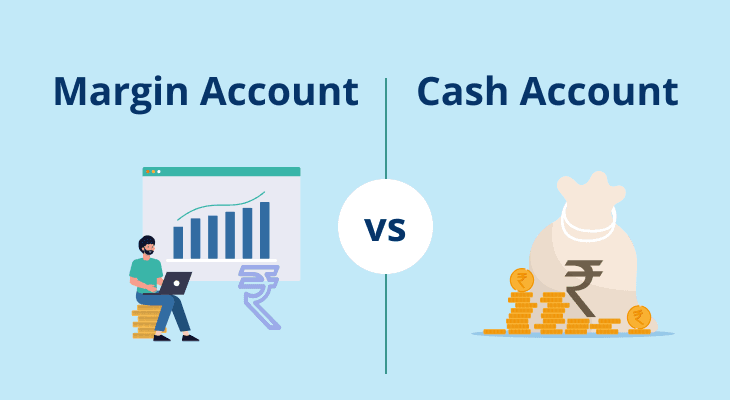
What is a Demat Account?
A Demat account – short for dematerialised account, has become crucial for anyone seeking to participate in the equity market. Much like a bank savings account holds your cash securely, a Demat account stores shares and securities in electronic form.
This digitisation simplifies the trading process, removes the need for physical share certificates, and enhances safety and transparency. In this article, understand what is a Demat account, why it matters, how it operates, the key benefits it delivers to investors, and how to open demat account online.
Introduction to Demat Account
A Demat account provides a secure and efficient way to hold and manage shares and various securities in electronic form. Thus, it replaces the need to handle cumbersome physical certificates of the various securities one holds and trades in the stock market.
Whenever you purchase equities, government bonds, exchange-traded funds or mutual fund units, these assets are credited directly to your Demat account, ensuring immediate confirmation and record of ownership. Likewise, when you sell your holdings, the corresponding units are automatically debited, and the proceeds are routed to your linked bank account.
This seamless credit-debit mechanism eliminates delays, reduces paperwork and removes the risk of loss, theft or forgery associated with paper certificates. By consolidating diverse asset classes under a single electronic roof, a Demat account enhances transparency, simplifies portfolio monitoring and accelerates turnaround times for all trading and settlement activities.
In India, the Depositories Act of 1996 laid the groundwork for modernising securities settlement, leading to the formation of two central depositories: the National Securities Depository Limited and the Central Depository Services Limited.
These organisations act as custodians of all electronic securities and maintain the master database of holdings. To access these services, investors must open a Demat account through an authorised intermediary known as a depository participant.
Depository participants include banks, brokerage firms and non-bank financial institutions registered with either depository. They facilitate account opening, document verification, dematerialisation of physical certificates and execution of corporate actions such as bonus issues, rights issues and dividend payments.
Importance and Purpose of Demat Accounts
The introduction of Demat accounts represented a fundamental overhaul in Indian equity trading, as it replaced cumbersome paper certificates with streamlined digital entries. This transformation has yielded several far-reaching benefits in modern investing:
#1. Enhanced Security and Convenience
By storing holdings electronically, Demat accounts eliminate the vulnerabilities associated with physical certificates – that is, risk of theft, forgery, loss or damage. Investors no longer need to maintain stacks of documents or worry about misplaced share certificates.
Instead, a single login to an online portal or mobile app provides instant access to real-time holdings. This digital convenience fosters greater participation from retail investors, who value the ease of monitoring and managing their portfolios without geographic constraints.
#2. Streamlined Settlement
Under the T+1 settlement cycle mandated by Indian exchanges, all trades must be settled within one business day of execution. Demat accounts automate this process: purchased securities are credited immediately on settlement day, while sale proceeds are routed seamlessly to the investor’s linked bank account.
The elimination of manual paperwork, like transfer deeds, stamp duties and courier delays – reduces settlement risk and accelerates fund utilisation. This enables investors to redeploy capital more efficiently.
#3. Automatic Corporate Actions
Demat accounts ensure that corporate actions such as dividends, bonus issues, rights issues and stock splits are processed automatically. When a company declares a bonus issue, new shares appear in your account without requiring any physical forms or additional submissions.
This feature not only prevents missed entitlements due to lost certificates but also provides clear, timely notifications. As a result, investors can track corporate developments as and when they occur.
#4. Consolidation and Cost Efficiency
By housing all asset classes like equities, government securities, exchange-traded funds, bonds and mutual funds in a single electronic repository, Demat accounts offer a consolidated view of one’s investments.
This transparency enables informed decision-making based on up-to-the-minute data. In addition, the digital transfer of securities attracts no stamp duty, significantly lowering transaction costs.
These cost savings, combined with faster settlement and robust security contribute to a more accessible, efficient, and investor-friendly market ecosystem.
Additional Read: Features & Benefits of a Demat Account - Demat A/C Advantages
How to open a demat account online
Opening and using a Demat account involves a few straightforward steps:
Account Opening
- Choose a depository participant (DP), such as your bank, a stockbroker (like mStock) or a non-bank financial institution that is registered with NSDL or CDSL.
- Complete an online KYC process by submitting proof of identity, proof of address, bank account details and passport-size photographs.
- Then link your bank account to enable seamless fund transfers.
Most providers complete this process within minutes, issuing you a unique Beneficial Owner Identification Number, or BO ID.
Dematerialisation of Physical Certificates
If you hold shares in physical form, submit your certificates along with a Dematerialisation Request Form to your DP. Deface each certificate by writing “Surrendered for Dematerialisation” and return them.
The DP processes your request with the depository, and once approved, the electronic versions of those shares appear in your account.
Trading and Settlement
A Demat account works in tandem with a trading account. When you place an order via your online trading platform, the exchange checks your Demat holdings for availability. On a purchase, the system credits shares to your Demat account; on a sale, it debits shares and routes the sale proceeds to your bank account. This integration underpins the T+1 settlement cycle and removes the risk of failed trades due to certificate-related issues.
Custody and Governance
NSDL and CDSL maintain records of all Demat accounts and enforce compliance with regulatory standards set by SEBI. Depository participants implement corporate actions, resolve discrepancies and ensure that your electronic securities are held safely in dematerialised form.
Additional Read: Demat Account Opening Procedure - Steps to open Demat Account
Key Benefits of a Demat Account
A Demat account offers several benefits that have revolutionised the way investors engage with financial markets in India. By digitising the process of holding and transacting in securities, Demat accounts have introduced efficiency, security, and convenience. Below are the key benefits of a demat account:
- Seamless settlement and quick transactions: The transition from physical to electronic holdings has significantly expedited the settlement process. This ensures that securities are credited or debited promptly, eliminating delays associated with manual paperwork.
- Enhanced security: Digital records maintained by central depositories like NSDL and CDSL ensure that investors' holdings are secure and tamper-proof.
- Lower transaction costs: Electronic transactions eliminate the need for stamp duties on share transfers and reduce handling charges. Many brokers (like mStock) offer competitive brokerage fees for Demat transactions, making investing more cost-effective.
- 24×7 access and remote monitoring: Demat accounts can be accessed anytime through online portals or mobile applications, allowing investors to monitor their holdings, view transaction history, and make informed decisions on the go.
- Reduced settlement risk: The elimination of physical documentation reduces the chances of errors, delays, and failed trades. Electronic settlements enhance the reliability and efficiency of transactions.
- Elimination of odd-lot issues: Previously, trading in physical shares required dealing in specific lot sizes. Demat accounts have eradicated this limitation, allowing investors to buy or sell even a single share, thereby enhancing market participation.
- Environmentally friendly: By reducing the reliance on paper certificates and physical documentation, Demat accounts contribute to environmental conservation efforts, aligning with sustainable practices.
Additional Read: A complete guide on Demat Account | Mirae Asset
Conclusion
For anyone looking to invest in listed securities, understanding what a Demat account is, and how it works is essential. It offers a secure, transparent and highly efficient way to hold financial instruments in electronic form, eliminating the risks and delays that once accompanied physical certificates. With features like seamless settlements, automatic corporate actions and real-time access, a Demat account forms the backbone of every investor’s equity market journey.
That said, using a Demat account effectively goes beyond just opening one. Choosing a reliable depository participant, linking your bank and trading accounts correctly, and staying informed about account-related charges are key steps towards managing your investments with confidence.
As Indian markets grow more accessible through digital platforms, the Demat account stands out as a key enabler, helping investors track, transact and take decisions with greater clarity. By learning its functions and leveraging its benefits fully, investors can lay a strong foundation for participating in capital markets.
Additional Read: Eligibility Criteria to Open a Demat Account - Demat A/C Eligibility
Additional Read: Types of Demat & Trading Account in India | Mirae Asset
FAQ
What is the meaning of a Demat account?
A Demat account holds shares and securities in electronic form, replacing paper certificates for safer, more convenient trading.
How do I open a Demat account online?
Select a depository participant such as a bank or broker, complete an online KYC with ID, address and bank proofs, and link your bank account. Approval typically takes minutes.
What documents are required to open a Demat account?
You need proof of identity (PAN, passport, driver’s licence), proof of address, bank account details, income proof if required, and passport-size photographs.
Can I convert physical share certificates into electronic form?
Yes. Submit your physical certificates with a Dematerialisation Request Form to your DP, who forwards it to the depository for electronic credit to your account.
Is a Demat account mandatory for trading in India?
Yes. SEBI regulations and the Depositories Act require investors to have a Demat account to trade or invest in listed securities on Indian exchanges.


